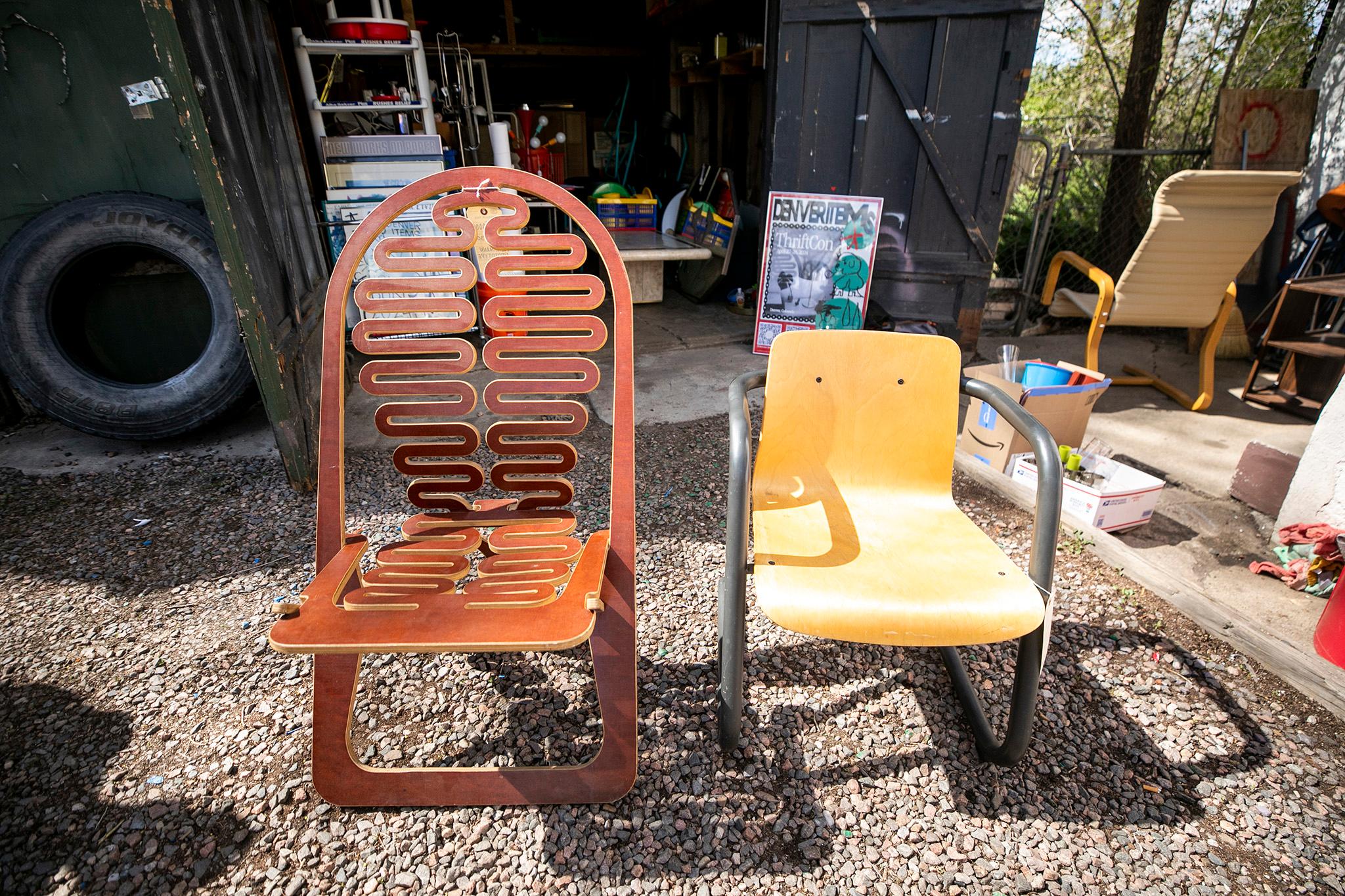Did you see the big set of walls near East 14th Avenue and Colorado Boulevard? It kind of looked like a giant bed, or a block fort, or a sound-reduction barrier for a fracking operation. It was neither.

A Denverite reader spotted the new structure and asked us what it might be. I looked it up on the city of Denver's property map, which can easily tell you who owns a lot, along with lots of other information.
This particular parcel belongs to National Jewish Health. It's part of the old Gove Middle School site, which has mostly been turned into parking lots. This one corner of the site, though, could become something more interesting: an underground water storage site.
Denver Water is "drilling into the aquifer and evaluating it for potential water storage there in wet years," said William Allstetter, a spokesman for NJH.
The regional water supplier is looking for places where it might pump excess water down into the aquifer, a permeable underground layer of rock that can hold water. It could be a convenient and cheaper way to store treated drinking water for later use – but Denver Water first has to test whether we have any sites that could work.

To do that testing, Denver Water is hauling drilling rigs around to four different properties and digging down to the aquifers, which might be 500 to 2,000 feet beneath Denver. This work began in 2015.
Each drilling operation takes about five days, and the one at 14th and Colorado already is finished, as is one at Arizona Avenue and Pecos Street; Denver Water also will dig in "at Sloan’s Lake near 16th Avenue and Quitman Street" starting on or after Nov. 30, while a fourth location at 50th Avenue and Vrain Street will follow later, according to BusinessDen.
Drilling rigs are noisy, so they come with big, walled structures that you more often see used by the oil industry. If the operations turn out to be too noisy – as in, beyond legal limits – then Denver Water will issue hotel vouchers.
And if it works, this method can be cheaper and less wasteful (no evaporation) than surface reservoirs, according to Denver Water. The testing will continue into 2017, and a functional pilot facility could follow by 2019.
Got a minor mystery? Email me.











